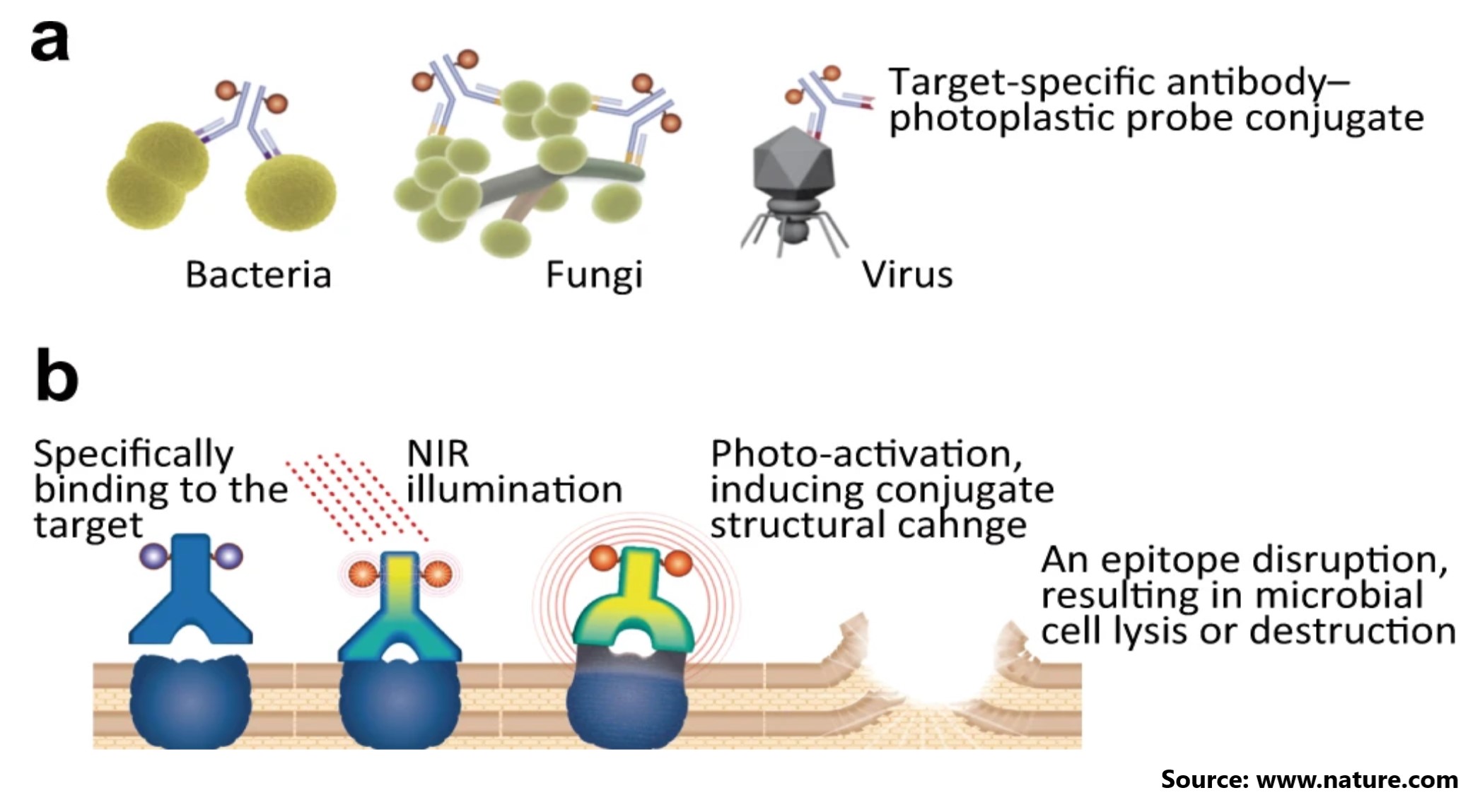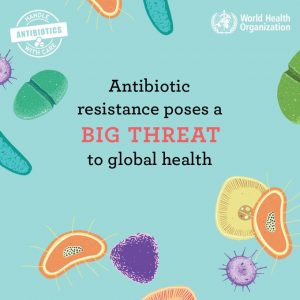The ongoing emergence of microbial pathogens for which no effective antimicrobials exist endangers global health, necessitating novel antimicrobial approaches. The bacterial pathogen Staphylococcus aureus (SA), particularly methicillin-resistant SA (MRSA), is a well-known multidrug-resistant pathogen.
According to recent research, the photo-activated probe caused a structural change in the probe and conjugate as well as mechanical stress, which damaged the binding sites. This study was conducted on the hypothesis that anticancer therapy could be extended to new applications, specifically as an antimicrobial strategy targeting a wide range of microbes, including bacterial, fungal, and viral pathogens, regardless of species or drug-resistance status.
The authors of this study created a new type of targeted antimicrobial strategy, the photoimmuno-antimicrobial strategy (PIAS). PIAS is a targeted antimicrobial system that is effective against a variety of microbial pathogens, regardless of target drug resistance status. Based on photoimmuno-technology, a photoimmuno-conjugate composed of an antibody against the target pathogen and a photoplastic phthalocyanine-derivative probe that generates photo-induced mechanical stress was developed. This strategy, known as the photoimmuno-antimicrobial strategy (PIAS), kills pathogens regardless of their species or drug resistance status. PIAS specifically targets the bacterial pathogen Staphylococcus aureus, the fungal pathogen Candida albicans, including drug-resistant strains, and the viral pathogen SARS-CoV-2, the causative agent of COVID-19. Furthermore, PIAS protects mice from lethal infections while causing no harm to the non-targeted host microbiota or tissues. This research could aid in the development of next-generation anti-infective therapies.
To know more, please visit the website of Nature (Link).







